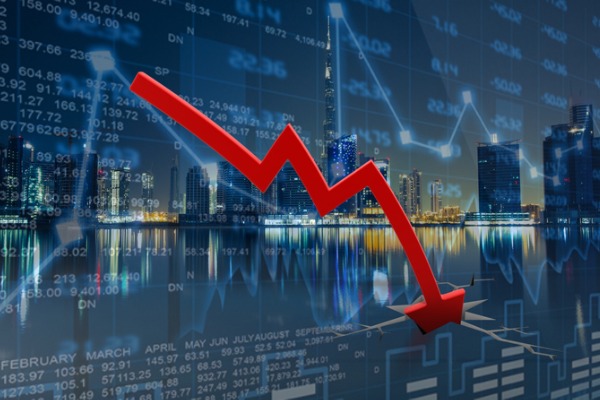FAANG stocks blunted amid US tech wobble
29th September 2021 13:56
by Graeme Evans from interactive investor
Our equities writer rounds up the state of play in the tech sector after the latest market slide. Also read what a City analyst has to say.

Followers of FAANG stocks including Apple (NASDAQ:AAPL) and Facebook (NASDAQ:FB) are sitting less comfortably after a surge in US bond yields created a drag on the value of Wall Street's high growth sectors.
The tech-focused Nasdaq closed 2.8% lower and the S&P 500 also weakened sharply on Tuesday as the semiconductor, media and software industries all retreated by 3% and nine out of the ten members of the so-called FANG+ index fell.
Along with the original FAANG stocks of Facebook, Apple, Amazon.com NASDAQ:AMZN), Netflix (NASDAQ:NFLX) and Alphabet (NASDAQ:GOOGL), this elite group also includes Tesla (NASDAQ:TSLA), Twitter (NYSE:TWTR), Chinese search engine Baidu (NASDAQ:BIDU) and chip firm NVIDIA (NASDAQ:NVDA). The only riser yesterday was e-commerce giant Alibaba (NYSE:BABA), which lifted 1.5%.
- Visit the ii Knowledge Centre for a wide range of investor education content
- ii Super 60 investments: quality options for your portfolio, rigorously selected by our impartial experts
- Check out our award-winning stocks and shares ISA
- Want to buy and sell international shares? It’s easy to do. Here’s how
Last night's fall for the FANG+ index of 2.5% is cushioned by growth of 12% in the year to date and more than 200% over the past five years. But the prospect of inflationary pressures leading to an earlier-than-expected hike in US interest rates is now causing some concern.
US yields have risen over the past four trading sessions as Wall Street now anticipates a faster withdrawal of monetary support, leading to a 25 basis points rise to above 1.5% for the 10-year Treasury yield since the Federal Reserve's policy meeting of last week.
Higher rates diminish the appeal of tech stocks and other high growth sectors where the present value is built around future cash flows. By contrast, value and cyclical sectors tend to fare better, with energy closing 0.5% higher in New York last night.
Despite last night's setback, UBS wealth management's chief investment officer Mark Haefele believes strong economic and earnings fundamentals will help sentiment to recover.
He expects the 10-year US Treasury to reach 1.8% by the end of the year, but with the gradual shift in central bank policy being more reflective of good economic growth than worries over persistent inflation.
Haefele explained: “The Fed has expressed increasing confidence in the recovery, and the Delta variant appears to have hit a turning point, while activity indicators remain strong.
“Based on data going back to 1997, three-month rises in 10-year US yields of under 100 basis points have been associated with positive equity performance, with only larger and swifter moves disrupting stocks. Over the past three months, 10-year yields have risen by 7 basis points.”
- Your vote counts: Babcock, Moonpig, AO World, Novacyt, Diageo
- Take control of your retirement planning with our award-winning, low-cost Self-Invested Personal Pension (SIPP)
- Don't be shy, ask ii...how do I tidy up my investment portfolio?
He expects further gains in the oil price to be short lived as supply disruptions ease and Opec exporters expand production, although prices for natural gas and coal are likely to stay elevated until next year when Russian, South African, and domestic Chinese supplies should recover.
Washington's debt ceiling concerns and the related risk of a sovereign default have added to negative equity sentiment in recent days but Haefele is hopeful a negotiated settlement can be found prior to a deadline of 18 October.
Against expectations for growth in global corporate earnings of 42% this year and 9% in 2022, UBS favours Japanese stocks and cyclical sectors, such as energy and financials, along with US mid-caps and companies exposed to the economic re-opening.
The recent sell-off is also a reminder for investors to diversify their sources of risk, Haefele added.
These articles are provided for information purposes only. Occasionally, an opinion about whether to buy or sell a specific investment may be provided by third parties. The content is not intended to be a personal recommendation to buy or sell any financial instrument or product, or to adopt any investment strategy as it is not provided based on an assessment of your investing knowledge and experience, your financial situation or your investment objectives. The value of your investments, and the income derived from them, may go down as well as up. You may not get back all the money that you invest. The investments referred to in this article may not be suitable for all investors, and if in doubt, an investor should seek advice from a qualified investment adviser.
Full performance can be found on the company or index summary page on the interactive investor website. Simply click on the company's or index name highlighted in the article.